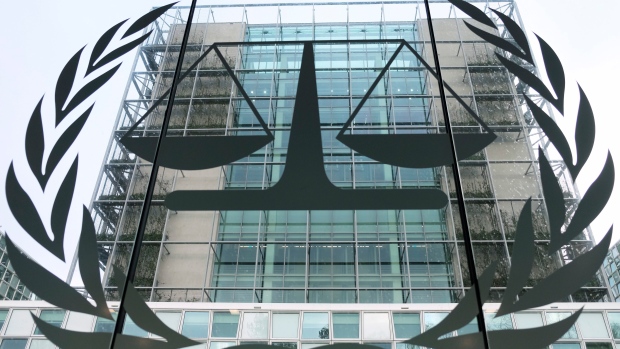ICC Probe Into War Crimes In Afghanistan Is Unwarranted, Says U.S

NEW DELHI: The United States has issued a response an International Criminal Court investigation of possible war crimes by US forces in Afghanistan, saying that such a probe is not "warranted or appropriate".
Elizabeth Trudeau, a state department spokesperson, added that the US was not party to the Rome Statute that created the ICC and had therefore, not agreed to its jurisdiction. The spokesperson added that the US internally had an effective justice system to deal with complaints, and the ICC’s proposed investigation was unwarranted. “The United States is deeply committed to complying with the law of war," Trudeau said. “We do not believe that an ICC examination or investigation with respect to actions of US personnel in relation to the situation in Afghanistan is warranted or appropriate."
The ICC had said a day earlier in a report that there was "reasonable basis to believe" US forces had tortured at least 61 prisoners in Afghanistan and another 27 at CIA detention facilities elsewhere in 2003 and 2004. "Members of US armed forces appear to have subjected at least 61 detained persons to torture, cruel treatment, outrages upon personal dignity on the territory of Afghanistan between 1 May 2003 and 31 December 2014," says the report issued by Prosecutor Fatou Bensouda, adding that CIA operatives may have subjected at least 27 detainees in Afghanistan, Poland, Romania and Lithuania to "torture, cruel treatment, outrages upon personal dignity and/or rape" between December 2002 and March 2008.
The prosecutor’s office said that it would take a decision whether to pursue a full investigation.
This is not the first time reports of torture by US forces and CIA operatives in Afghanistan have emerged. In 2014, a condensed Senate Intelligence Committee report was released after the US closed its last prison in Afghanistan, detailing some of the techniques used to interrogate the prisoners that would constitute. As an example of the methods used, Redha al-Najar, was the subject of the “enhanced interrogation techniques” described in the Senate report. Al-Najar, a former bodyguard of Osama Bin Laden, was interrogated using techniques that included "isolation in total darkness; lowering the quality of his food; keeping him at an uncomfortable (cold) temperature, playing music 24 hours a day and keeping him shackled and hooded." He was left hanging, his wrists handcuffed to an overhead bar, for 22 hours for two days, wearing a diaper with no access to toilet facilities. After a month, the Senate report concluded, al-Najar was left "clearly a broken man" and "on the verge of complete breakdown."
The CIA’s “enhanced interrogation techniques” were put in place after September 11, with much of the interrogation taking place in Afghanistan. According to the Senate report, a secret facility known as Detention Site Cobalt, believed to be outside Kabul, was one of the first places where interrogators tortured detainees with techniques that included sleep deprivation, beatings, threats, chaining to walls and exposure to extreme temperatures.
The treatment of Afghan detainees by the CIA has been an emotive issue for Afghans, with the Senate report, for the first time, demonstrating the extent of the abuse.
The CIA had defended the “enhanced interrogation techniques” on grounds that they helped solicit information that could not otherwise be obtained. This is linked to the most significant part of the report, which concluded that these techniques -- considered equivalent to torture -- were not necessary to “save lives” or deliver information that was not being solicited by other means.
"The use of the CIA's enhanced interrogation techniques was not an effective means of obtaining accurate information," the report concluded. It debunked the top 20 examples the CIA used to defend the enhanced interrogation program, noting that each of the examples "was found to be wrong in fundamental respects."
In fact, the report went a step further and said that false confessions obtained by brutal techniques led to dead leads. In short, the enhanced interrogation techniques adopted by the CIA either led to false information or to information that had already been obtained through alternative techniques.
Despite the release of the report and the media attention it received in the US and across the world, with Afghan President Ghani making several emotive public addresses on the issue, little has been done in terms of taking action against the perpetrators of such abuse and torture. The US Justice Department, between 2009 and 2012, investigated CIA mistreatment of detainees, including a full criminal investigation into two deaths in US custody, but ultimately decided against prosecuting anyone.



